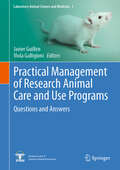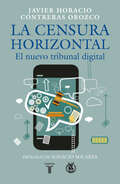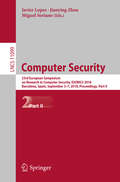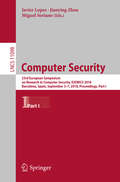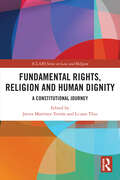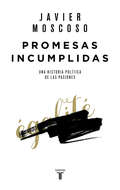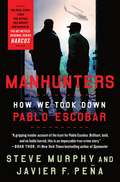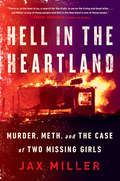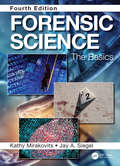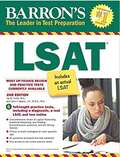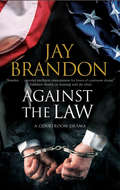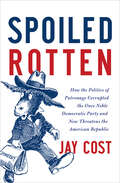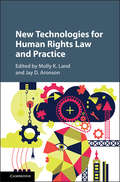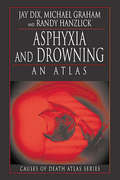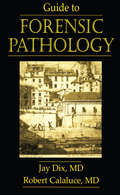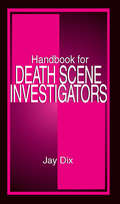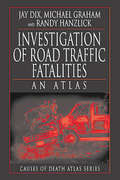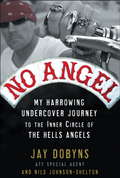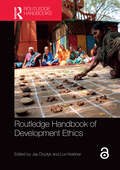- Table View
- List View
Practical Management of Research Animal Care and Use Programs: Questions and Answers (Laboratory Animal Science and Medicine #3)
by Javier Guillén Viola GalligioniThis book provides a complete guide to all the aspects to consider during planning, establishing and managing ethically and efficiently research animal care and use programs, taking into account all stakeholders involved in the process. Practical information on how to address the general and particular needs of all animal care and use program areas is provided. Consequently, the reader is supported with getting their project ethically and legally compliant, and implemented efficiently with organizing safe and appropriate facilities and equipment as well as hiring sufficiently trained personnel. Furthermore, strategies for impactful internal and external communication are outlined. Responsible use of animals in research can be nothing but teamwork. The environment and professional experience of all involved stakeholders are the key for ensuring quality science, as well as animal and personnel welfare. Research animal care and use programs represent a complex system in which animals, legislation and good practices, facility personnel and researchers interact on a daily basis. Thoughtful planning from the first step ensures animal welfare and improves the quality of in vivo experimentation. This book addresses animal program managers, veterinarians, researchers and technicians working in research animal facilities. Chapter 18 is available open access under a Creative Commons Attribution 4.0 International License via link.springer.com.
La censura horizontal: Un nuevo tribunal digital
by Javier Horacio Contreras Orozco«Javier Contreras ha escrito un libro excepcional y necesario en estos tiempos de tecnologización de la vida pública.» Ignacio Solares Hoy en día las redes sociales son mucho más que simples herramientas de entretenimiento, información y socialización: una parte de nuestras vidas transcurre dentro de ellas. Han ampliado nuestra capacidad de comunicación de forma inaudita, le han dado voz a personas que antes no la tenían y, sobre todo, permiten que la información fluya con una velocidad y en volúmenes sorprendentes. Sin embargo, estas características no han hecho de las redes sociales los espacios de diálogo y tolerancia que esperábamos de ellas. Por el contrario, con frecuencia las hemos visto convertirse en la gran hoguera del siglo xxi. En este libro, Javier Horacio Contreras Orozco analiza las condiciones y procesos que han llevado a las redes sociales a constituirse en un jurado universal que ejerce un nuevo tipo de censura: la poscensura o censura horizontal. A diferencia de la censura tradicional, que provenía de los gobiernos o de poderosos intereses privados, la censura horizontal es un sistema de vigilancia y silenciamiento entre pares. Un tribunal sin juez o, mejor dicho, en el que todos son jueces, pero en el que también todos pueden ocupar el banquillo de los acusados de un momento a otro. Al excluir a una gran cantidad de voces del debate público, la censura horizontal contribuye a la pandemia de desinformación que caracteriza nuestros días. Es uno más, como advierte Contreras Orozco, de los síntomas de la era de la posverdad.
Ne bis in idem and Multiple Sanctioning Systems: A Case Law Study of the European Court of Human Rights and the Court of Justice of the EU (Legal Studies in International, European and Comparative Criminal Law #8)
by Javier Ignacio Escobar VeasThe aim of the book is to resolve the question of whether multiple sanctioning systems are contrary to the ne bis in idem under the regulation provided by Protocol 7 to the ECHR and the EU Charter of Fundamental Rights. The first part is a comparative study regarding the lawfulness of multiple sanctioning systems under the ne bis in idem, studying the evolution and the current state of the case law of the United States Supreme Court, the Canadian Supreme Court, the Spanish Constitutional Court, the European Court of Human Rights (ECtHR) and the Court of Justice of the European Union (CJEU). The second part of the book critically analyses three problems with the case law of the ECtHR and the CJEU. Part three deals with reconceptualizing the prohibition of multiple punishment and the prohibition of multiple prosecutions. Finally, the fourth part addresses other possible protections against multiple sanctioning systems. Two other safeguards that limit multiple sanctioning systems are the prohibition of disproportionate sanctions and the right to be tried within a reasonable time.
Computer Security: 14th International Conference, Isc 2011, Xi'an, China, October 26-29, 2011, Proceedings (Lecture Notes In Computer Science / Security And Cryptology Ser. #3650)
by Javier Lopez Jianying Zhou Miguel SorianoThe two-volume set, LNCS 11098 and LNCS 11099 constitutes the refereed proceedings of the 23nd European Symposium on Research in Computer Security, ESORICS 2018, held in Barcelona, Spain, in September 2018.The 56 revised full papers presented were carefully reviewed and selected from 283 submissions. The papers address issues such as software security, blockchain and machine learning, hardware security, attacks, malware and vulnerabilities, protocol security, privacy, CPS and IoT security, mobile security, database and web security, cloud security, applied crypto, multi-party computation, SDN security.
Computer Security: 14th International Conference, Isc 2011, Xi'an, China, October 26-29, 2011, Proceedings (Lecture Notes In Computer Science / Security And Cryptology Ser. #3650)
by Javier Lopez Jianying Zhou Miguel SorianoThe two-volume set, LNCS 11098 and LNCS 11099 constitutes the refereed proceedings of the 23nd European Symposium on Research in Computer Security, ESORICS 2018, held in Barcelona, Spain, in September 2018.The 56 revised full papers presented were carefully reviewed and selected from 283 submissions. The papers address issues such as software security, blockchain and machine learning, hardware security, attacks, malware and vulnerabilities, protocol security, privacy, CPS and IoT security, mobile security, database and web security, cloud security, applied crypto, multi-party computation, SDN security.
Fundamental Rights, Religion and Human Dignity: A Constitutional Journey (ICLARS Series on Law and Religion)
by Javier Martínez-Torrón and Li-ann ThioThis collection examines theoretical and practical issues concerning the relationship between freedom of religion or belief and other fundamental rights, in the context of secular States, from the perspective of human dignity.As the Universal Declaration of Human Rights made clear, human dignity constitutes the foundation of human rights, among which freedom of thought, conscience, and religion occupies a prominent place. As a consequence of the inter-cultural debate that is ongoing in contemporary Western societies, which are increasingly pluralistic, the concept of human dignity faces important challenges in terms of what it requires. The five chapters included in the first part of this book discuss some of these conceptual challenges, such as the implications of common good constitutionalism for the understanding of human dignity and the role of religious freedom from the perspective of Western experiences and legal thinkers. The chapters in Part II explore particular questions involving human dignity and the relationship between freedom of religion or belief and other human rights, for example, how to build bridges between religious freedom and other fundamental freedoms when people make conflicting legitimate choices. Taken together, the book offers an insightful range of perspectives on some contemporary challenges raised by the exercise of religious freedom in societies that claim to be based on respect for human dignity and human rights.The volume will be a valuable resource for academics, researchers, and policy-makers working in the areas of Law and Religion, Human Rights Law, Constitutional Law, and International Relations.
Promesas incumplidas: Las fuentes históricas de la indignación
by Javier MoscosoPromesas incumplidas es una historia sobre la ambición, ligada a la promesa igualitaria y al desengaño que marcó el Romanticismo. De la mano de Javier Moscoso, uno de los mejores ensayistas españoles contemporáneos. Ambición, resentimiento, envidia, celos... El Promesas incumplidas explora las emociones más estrechamente relacionadas con la rivalidad, pero también la fraternidad, el patriotismo, la compasión o la amistad. Las fuentes consultadas incluyen tratados de medicina, de filosofía moral y política, así como de lo que hoy denominamos psiquiatría. Junto a estos se han consultado textos biográficos y autobiográficos, así como material iconográfico, fuentes publicadas y manuscritas.
Manhunters: How We Took Down Pablo Escobar
by Steve Murphy Javier PeñaFor the first time, legendary DEA operatives Steve Murphy and Javier F. Peña tell the true story of how they helped put an end to one of the world’s most infamous narco-terrorists in Manhunters: How We Took Down Pablo Escobar—the subject of the hit Netflix series, Narcos.Colombian drug lord Pablo Escobar’s brutal Medellín Cartel was responsible for trafficking tons of cocaine to North America and Europe in the 1980s and ’90s. The nation became a warzone as his sicarios mercilessly murdered thousands of people—competitors, police, and civilians—to ensure he remained Colombia’s reigning kingpin. With billions in personal income, Pablo Escobar bought off politicians and lawmen, and became a hero to poorer communities by building houses and sports centers. He was nearly untouchable despite the efforts of the Colombian National Police to bring him to justice.But Escobar was also one of America’s most wanted, and the Drug Enforcement Administration was determined to see him pay for his crimes. Agents Steve Murphy and Javier F. Peña were assigned to the Bloque de Búsqueda, the joint Colombian-U.S. taskforce created to end Escobar’s reign of terror. For eighteen months, between July 1992 and December 1993, Steve and Javier lived and worked beside Colombian authorities, finding themselves in the crosshairs of sicarios targeting them for the $300,000 bounty Escobar placed on each of their heads.Undeterred, they risked the dangers, relentlessly and ruthlessly separating the drug lord from his resources and allies, and tearing apart his empire, leaving him underground and on the run from enemies on both sides of the law.Manhunters presents Steve and Javier’s history in law enforcement from their rigorous physical training and their early DEA assignments in Miami and Austin to the Escobar mission in Medellin, Colombia—living far from home and serving as frontline soldiers in the never ending war on drugs that continues to devastate America.
Policing the Mexican Past: Transitional Justice in a Post-authoritarian Regime (Palgrave Studies in Compromise after Conflict)
by Javier Trevino-RangelThis book critically examines transitional justice in Mexico. It explores how the Mexican democratic regime dealt with the grave human rights violations perpetrated by security forces during the authoritarian era (1929-2000) through a Special Prosecutor’s Office. It offers a complete account of the diverse factors that facilitated the emergence (and policing) of Mexico's transitional justice process. Whilst transitional justice should contribute to the advancement of liberal democracy and, consequently, generate the following benefits: truth, justice, political reconciliation, peace, this book argues that Mexico is a case of transitional injustice. It is an example of how in some societies transitional justice mechanisms are intentionally implemented in ways that, instead of generating justice, produce impunity. It makes important contributions to some of the broader debates addressed by scholars on transitional justice and gives them reason to re-examine transitional justice processes in other countries in a new light.
Hell in the Heartland: Murder, Meth, and the Case of Two Missing Girls
by Jax Miller&“There is, in the best of us, a search for the truth, to serve the living and dead alike...Jax Miller is one of those people and Hell in the Heartland is one of those books.&”—Robert Graysmith, New York Times bestselling author of ZodiacAs seen in HuffPost • OK! Magazine • CrimeReads • LitHub's "Best New Summer Books"S-Town meets I'll Be Gone in the Dark in this stranger-than-fiction cold case from rural Oklahoma that has stumped authorities for two decades, concerning the disappearance of two teenage girls and the much larger mystery of murder, possible police cover-up, and an unimaginable truth...On December 30, 1999, in rural Oklahoma, sixteen-year-old Ashley Freeman and her best friend, Lauria Bible, were having a sleepover. The next morning, the Freeman family trailer was in flames and both girls were missing.While rumors of drug debts, revenge, and police corruption abounded in the years that followed, the case remained unsolved and the girls were never found.In 2015, crime writer Jax Miller--who had been haunted by the case--decided to travel to Oklahoma to find out what really happened on that winter night in 1999, and why the story was still simmering more than fifteen years later. What she found was more than she could have ever bargained for: evidence of jaw-dropping levels of police negligence, entire communities ravaged by methamphetamine addiction, and a series of interconnected murders with an ominously familiar pattern.These forgotten towns were wild, lawless, and home to some very dark secrets.
Forensic Science: The Basics, Fourth Edition
by Kathy Mirakovits Jay A SiegelForensic Science: The Basics, Fourth Edition is fully updated, building on the popularity of the prior editions. The book provides a fundamental background in forensic science, criminal investigation and court testimony. It describes how various forms of evidence are collected, preserved and analyzed scientifically, and then presented in court based on the analysis of the forensic expert. The book addresses knowledge of the natural and physical sciences, including biology and chemistry, while introducing readers to the application of science to the justice system. New topics added to this edition include coverage of the formation and work of the NIST Organization of Scientific Area Committees (OSACs), new sections on forensic palynology (pollen), forensic taphonomy, the opioid crisis, forensic genetics and genealogy, recent COVID-19 fraud schemes perpetrated by cybercriminals, and a wholly new chapter on forensic psychology. Each chapter presents a set of learning objectives, a mini glossary, and acronyms. While chapter topics and coverage flow logically, each chapter can stand on its own, allowing for continuous or selected classroom reading and study. Forensic Science, Fourth Edition is an ideal introductory textbook to present forensic science principles and practices to students, including those with a basic science background without requiring prior forensic science coursework.
Forensic Science: The Basics (2nd Edition)
by Jay A. Siegel Kathy MirakovitsForensic Science: The Basics takes students through the criminal justice and forensic science systems from crime scene to court. It builds a solid foundation of tools such as microscopy, spectroscopy, and separation sciences and then applies them to the analysis of both the familiar types of evidence such as DNA, drugs, and trace evidence, but still covers the not so commonly studied "-ologies"--pathology, anthropology, odontology, and entomology.
LSAT: With Online Tests
by Jay B. Cutts John F. MaresThis must-have review book thoroughly prepares law school candidates for the all-important Law School Admission Test. <p><p>An introductory chapter explains the LSAT's format, suggests a detailed three-month study plan for success, and presents a diagnostic test with explained answers. Chapters that follow explain and review each of the LSAT's sections: Logical Reasoning, Reading Comprehension, and Analytical Reasoning. <p><p> The LSAT EssayEach chapter includes study tips, strategies for understanding and correctly answering the questions, critical strategies for controlling time, and a sample test with explained answers. All tests contain answer keys and through answer explanations. <p><p>BONUS ONLINE TESTS:Test takers who purchase this book will get access to two additional online practice LSATs with timed test sections, explained answers, and automated scoring. Those who purchase the book will also have access to online explanations for a second actual LSAT exam.
Against the Law: A Courtroom Drama
by Jay BrandonIntroducing lawyer-turned-ex-con Edward Hall—from the &“the finest writer of legal thrillers in the country&” (Jeremiah Healy, bestselling author of the John Cuddy mysteries). Fresh out of prison, former lawyer Edward Hall thinks his days in the courtroom are behind him. Until his sister, Dr Amy Hall, is arrested for murder . . . She&’s been accused of shooting the ex-husband she supposedly reconciled with and is convinced that her ex-convict brother is the only one able to save her. To make matters worse, the media won&’t ignore Amy&’s high-profile case; an example needs to be made of a doctor murdering another doctor. So Edward promises to do everything he can to protect his sister, because she is innocent, isn&’t she? Edward finds himself back in the courtroom facing Cynthia, the judge responsible for his arrest and imprisonment all those years ago. With personal grudges heavy in the air, can Edward spare his sister from a brutal sentencing that could cost her her life? &“Brandon, a Texas criminal lawyer, knows how to ratchet up tension in the courtroom.&”—Publishers Weekly &“A fine, tense legal thriller with an offbeat plot.&”—Booklist Praise for Jay Brandon &“Jay Brandon knows how to put together a tight, believable courtroom melodrama.&”—Entertainment Weekly &“Brandon is among the best in the legal-thriller business at catching the real atmosphere of a trial.&”—Publishers Weekly
Spoiled Rotten: How the Politics of Patronage Corrupted the Once Noble Democratic Party and Now Threatens the American Republic
by Jay CostA popular columnist for The Weekly Standard, conservative journalist Jay Cost now offers a lively, candid, diligently researched revisionist history of the Democratic Party. In Spoiled Rotten, Cost reveals that the national political organization, first formed by Andrew Jackson in 1824, that has always prided itself as the party of the poor, the working class, the little guy is anything but that—rather, it’s a corrupt tool of special interest groups that feed off of the federal government. A remarkable book that belongs on every politically aware American’s bookshelf next to Jonah Goldberg’s Liberal Fascism and The Forgotten Man by Amity Shlaes, Spoiled Rotten exposes the Democratic Party as a modern-day national Tammany Hall and indisputably demonstrates why it can no longer be trusted with the power of government.
Justified: A sultry, enemy-to-lovers romance that will leave you desperate for more! (Loveless)
by Jay Crownover'With a red-hot hero and emotional, unforgettable storyline, Crownover delivers the goods' Lori Wilde, New York Times bestselling authorFrom the New York Times bestselling author of the Marked Men series comes Jay Crownover's latest steamy Texan romance. Will Case and Aspen find their happy ending or are some grudges too much to overcome...'This tense, sensual romance is chock full of headstrong, admirable characters who will appeal to romance and suspense fans alike' Publishers WeeklyThe last thing Case Lawton wants to do is help the woman who cost him everything, but maybe Aspen isn't the heartless lawyer he thought he knew...Case Lawton comes from a family of criminals. So as the sheriff of Loveless, Texas, he's determined to do everything by the book - until he's called to Aspen Barlow's office after a so-called break-in. Although he's uninterested in helping the lawyer who caused him to lose custody of his son, Case is surprised by the Aspen he finds there, and starts to question his long-held grudge...Aspen is scared for her life, and Case is her last hope for protection. But she knows that to get him on her side, she'll have to reveal the painful truth from all those years ago. Now, as they work together to track down a dangerous criminal, Case and Aspen have to learn to trust each other. And as the threats escalate, it becomes clear there's a thin line between love and hate... and soon there's nothing Case wouldn't do to keep her safe...Includes It's All About That Cowboy, a bonus novella by Carly Bloom!Readers are loving Jay Crownover's latest!'A sultry, action-packed, wonderful addition to the Loveless, Texas series by Crownover that keeps you on your toes from start to finish, warms the heart, and definitely leaves you yearning for more' 5* reader review'Pairing an angsty, steamy enemies-to-lovers romance with a twisty, turny suspense arc, Justified was a riveting love story....Justified is Jay Crownover at the top of her game' 5* reader review'Justified is absolutely everything I love about Jay Crownover! Strong characters, some intrigue, some mystery, and a whole lot of sexiness make for a book I just did not want to put down!' 5* reader reviewFilled with heart, intrigue and cast of characters you'll fall for, don't miss out on the other titles in the Loveless, Texas series! Praise for Jay Crownover and the Loveless, Texas series:'I'm in love with Loveless, TX!!' 5* reader review'I always recommend any books written by Jay Crownover' 5* reader review'I've never read a Jay Crownover book that I have not loved' 5* reader review'Off the charts attraction, dramatic suspense, heartbreaking betrayal, deep emotion, and unforgettable romance will keep you turning the pages to the climactic end. Fans and new readers will devour this fantastic story. I couldn't put it down!' Jennifer Ryan, New York Times bestselling author'Once again, Jay Crownover proves why her words are so addictive! Her characters bleed life so tangibly, you feel like you're drowning in the emotions: in the best way possible. Five big huge stars for Justified! Don't miss this page turner!' Harper Sloan, New York Times bestselling author
Justified: A sultry, enemy-to-lovers romance that will leave you desperate for more! (Loveless)
by Jay CrownoverFrom the New York Times bestselling author of the Marked Men series comes an irresistible and thrilling romance between a rugged Texas sheriff and the woman who was once his sworn enemy...Case Lawton comes from a family of criminals. So as the sheriff of Loveless, Texas, he's determined to do everything by the book - until he's called to Aspen Barlow's office after a so-called break-in. The last thing he wants to do is help the woman who cost him custody of his son. But Aspen isn't the heartless lawyer Case remembers, and he starts to question his long-held grudge...Aspen is scared for her life, and Case is her last hope for protection. But to get him on her side, she'll have to reveal the painful truth from all those years ago. Now, as they work together to track down a dangerous criminal, Case and Aspen learn to trust each other. And as the threats escalate, it becomes clear there's a thin line between love and hate... because there's nothing Case wouldn't do to keep her safe.(P)2019 Hachette Audio
New Technologies for Human Rights Law and Practice
by Jay D. Aronson Molly K. LandNew technological innovations offer significant opportunities to promote and protect human rights. At the same time, they also pose undeniable risks. In some areas, they may even be changing what we mean by human rights. The fact that new technologies are often privately controlled raises further questions about accountability and transparency and the role of human rights in regulating these actors. This volume – edited by Molly K. Land and Jay D. Aronson – provides an essential roadmap for understanding the relationship between technology and human rights law and practice. It offers cutting-edge analysis and practical strategies in contexts as diverse as autonomous lethal weapons, climate change technology, the Internet and social media, and water meters. This title is also available as Open Access.
Who Owns the Dead?
by Jay D. AronsonAfter the 9/11 attack on the World Trade Center, Chief Medical Examiner Charles Hirsch proclaimed that his staff would do more than confirm the victims' identity. They would attempt to return to families every human body part larger than a thumbnail. As Jay D. Aronson shows, delivering on that promise proved to be a monumentally difficult task.
Asphyxia and Drowning: An Atlas (Cause of Death Atlas Series)
by Jay Dix Michael Graham Randy HanzlickThis third volume in the Forensic Pathology Atlases: Causes of Death Series provides an overview of the types, mechanisms, and physical findings associated with deaths involving asphyxia. Asphyxia and Drowning serves as a basic framework for an extensive pictorial representation of findings associated with these types of deaths. It helps the reader
Guide to Forensic Pathology
by Jay DixGuide to Forensic Pathology provides a concise overview of forensic pathology to those who wish to know the basics but lack formal forensic training. Both fascinating and practical, this book explains everything from who the experts are in death investigation and what their roles are to how effective testimonies are presented in court. The importance of forensic DNA testing is emphasized with a separate section in this timely reference guide.
Handbook for Death Scene Investigators
by Jay DixHandbook for Death Scene Investigators provides concise information in a handy, pocket-sized (3 1/2" x 6") format - perfect for on-the-scene reference.Details about sudden natural deaths by disease and accidents are emphasized in this guidebook, complemented with practical information on:reviewing a medical chartcollecting evidenceobtaining a medic
Investigation of Road Traffic Fatalities: An Atlas (Cause of Death Atlas Series)
by Jay Dix Michael Graham Randy HanzlickThe screech of rubber against asphalt. And then the crash: a violent two-car collision resulting in a twisted mass of metal, plastic, and glass-and worse, the deaths of both drivers.Accident reconstruction is but one phase of road traffic fatality (RTF) cases. Even as police officers draw their last diagram, interview their last witness, and recons
No Angel: My Harrowing Undercover Journey to the Inner Circle of the Hells Angels
by Jay Dobyns Nils Johnson-SheltonHere, from Jay Dobyns, the first federal agent to infiltrate the inner circle of the outlaw Hells Angels Motorcycle Club, is the inside story of the twenty-one-month operation that almost cost him his family, his sanity, and his life.Getting shot in the chest as a rookie agent, bartering for machine guns, throttling down the highway at 100 mph, and responding to a full-scale, bloody riot between the Hells Angels and their rivals, the Mongols–these are just a few of the high-adrenaline experiences Dobyns recounts in this action-packed, hard-to-imagine-but-true story.Dobyns leaves no stone of his harrowing journey unturned. At runs and clubhouses, between rides and riots, Dobyns befriends bad-ass bikers, meth-fueled “old ladies,” gun fetishists, psycho-killer ex-cons, and even some of the “Filthy Few”–the elite of the Hells Angels who’ve committed extreme violence on behalf of their club. Eventually, at parties staged behind heavily armed security, he meets legendary club members such as Chuck Zito, Johnny Angel, and the godfather of all bikers, Ralph “Sonny” Barger. To blend in with them, he gets full-arm ink; to win their respect, he vows to prove himself a stone-cold killer.Hardest of all is leading a double life, which has him torn between his devotion to his wife and children, and his pledge to become the first federal agent ever to be “fully patched” into the Angels’ near-impregnable ranks. His act is so convincing that he comes within a hairsbreadth of losing himself. Eventually, he realizes that just as he’s been infiltrating the Hells Angels, they’ve been infiltrating him. And just as they’re not all bad, he’s not all good.Reminiscent of Donnie Brasco’s uncovering of the true Mafia, this is an eye-opening portrait of the world of bikers–the most in-depth since Hunter Thompson’s seminal work–one that fully describes the seductive lure criminal camaraderie has for men who would otherwise be powerless outsiders. Here is all the nihilism, hate, and intimidation, but also the freedom–and, yes, brotherhood–of the only truly American form of organized crime.From the Hardcover edition.
Routledge Handbook of Development Ethics
by Lori Keleher Jay DrydykThe Routledge Handbook of Development Ethics provides readers with insight into the central questions of development ethics, the main approaches to answering them, and areas for future research. Over the past seventy years, it has been argued and increasingly accepted that worthwhile development cannot be reduced to economic growth. Rather, a number of other goals must be realised: • Enhancement of people's well-being • Equitable sharing in benefits of development • Empowerment to participate freely in development • Environmental sustainability • Promotion of human rights • Promotion of cultural freedom, consistent with human rights • Responsible conduct, including integrity over corruption Agreement that these are essential goals has also been accompanied by disagreements about how to conceptualize or apply them in different cases or contexts. Using these seven goals as an organizing principle, this handbook presents different approaches to achieving each one, drawing on academic literature, policy documents and practitioner experience. This international and multi-disciplinary handbook will be of great interest to development policy makers and program workers, students and scholars in development studies, public policy, international studies, applied ethics and other related disciplines.
